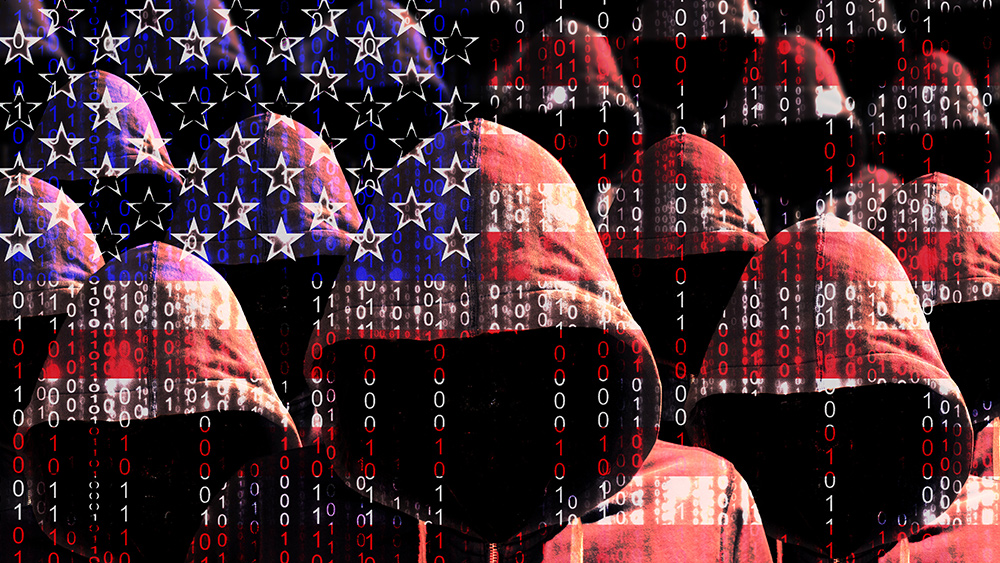New “data protection” bill in the U.K. expands ability of banks and corporations to surveil customers
04/11/2024 / By Arsenio Toledo

A bill is currently making its way through the parliament of the United Kingdom, which could grant the country’s government with extraordinary new financial surveillance powers.
The Data Protection and Digital Information (DPDI) bill proposes changes to the U.K.’s General Data Protection Regulations, which provide the foundation for the rules and principles that govern how organizations within the U.K. use personal data. (Related: Most Brits feel they are victims of “sonic snooping,” and cybersecurity experts believe they’re right.)
Lawyers, academics and other privacy activists are warning that the changes being proposed by the DPDI would actually erode the privacy rights of British citizens, especially in the context of personal data.
One main concern is that the DPDI gives banks expanded powers to monitor the accounts of private citizens under the premise of being on the lookout for fraud and errors in welfare payouts. If banks find concerns, they can flag the accounts of people who meet as-yet-unpublished criteria to the government.
Another cause for concern is the fact that the DPDI bill removes the right of British citizens to not be subjected to automated decision-making without their consent, especially where the decision has a profound legal or “similarly significant effect.” The government claims it will replace this right with safeguards, but critics have warned that these are “inadequate.”
Other critics have highlighted how the DPDI weakens crucial data protection rights and could leave people in Britain even more vulnerable to exploitation, especially by tech giants.
“The effects will be stark. The power imbalance between individuals and large corporations, especially Big Tech and public services, will widen drastically,” said Ann Kristin Glenster of the University of Cambridge.
“Data protection was meant to guarantee fundamental rights that could not be sold or bartered away. The [DPDI] does just that,” warned Glenster.
Brexit, economic interests influencing British government’s push to pass DPDI
Analysts have pointed out that the British government is very interested in passing the DPDI so that it could create a more “business-friendly regime” within the country, especially when the data of Brits is transferred to continental Europe.
Currently, businesses in the U.K. and the EU can freely share personal data across borders. But the DPDI could weaken the levels of protection given to data in Britain when compared to the protections given in the European Union.
To prevent any potential breaches of data, the EU could restrict data transfers between the bloc and the U.K., presenting businesses on both sides of the English Channel with major bureaucratic challenges.
Since leaving the EU, data the continent receives from the U.K. has benefited from an “adequacy decision” made by the European Commission, which indicates that the transfer of personal data from Europe to third countries is prohibited if those countries do not guarantee an “adequate level of protection” for the data. Some third countries, such as the United States, are judged to have sufficiently robust data protection laws to be granted an “adequacy finding,” enabling the free flow of personal data to continue.
But the U.K.’s coverage under this adequacy decision rests on Britain not diverging from European data protection standards. If it does, the Commission can and will revoke the adequacy decision.
If this happens, transfers of data from the U.K., to the EU and then to third countries will rest on businesses being responsible for implementing their own safeguards to ensure that the data is protected to sufficient standards, raising concerns that corporations – especially large and highly influential ones – might not fulfill the mandate of providing sufficient protections for personal data.
Nevertheless, the British government has hailed the latest version of the DPDI bill as a “Brexit dividend” that would create a more business-friendly data protection regime within the U.K. that supposedly upholds individual rights to privacy while at the same time promoting growth and innovation.
According to the government, the DPDI bill “would seize the post-Brexit opportunity to boost the economy by 4.7 billion pounds [$5.97 billion] over the next decade.”
Watch this clip of WikiLeaks founder Julian Assange, currently under arrest in the U.K., speaking about the importance of free speech.
This video is from the channel Cynthia’s Pursuit of Truth on Brighteon.com.
More related stories:
U.K.’s “Online Safety Act” OFFICIALLY grants MSM permission to publish LIES.
British police secretly using U.K. passport database to conduct facial recognition searches.
U.K. government departments are SECRETLY MONITORING critics on social media and BLACKLISTING them.
U.K. passes Online Safety Bill in latest attack targeting online free speech and privacy in Britain.
Sources include:
Submit a correction >>
Tagged Under:
big government, brexit, computing, conspiracy, cyber war, Dangerous, data protection, finance riot, financial surveillance, Glitch, information technology, insanity, national security, Orwellian, outrage, police state, precrime, privacy watch, surveillance, Tyranny, United Kingdom, watched
This article may contain statements that reflect the opinion of the author
RECENT NEWS & ARTICLES
COPYRIGHT © 2017 GLITCH.NEWS
All content posted on this site is protected under Free Speech. Glitch.news is not responsible for content written by contributing authors. The information on this site is provided for educational and entertainment purposes only. It is not intended as a substitute for professional advice of any kind. Glitch.news assumes no responsibility for the use or misuse of this material. All trademarks, registered trademarks and service marks mentioned on this site are the property of their respective owners.

















